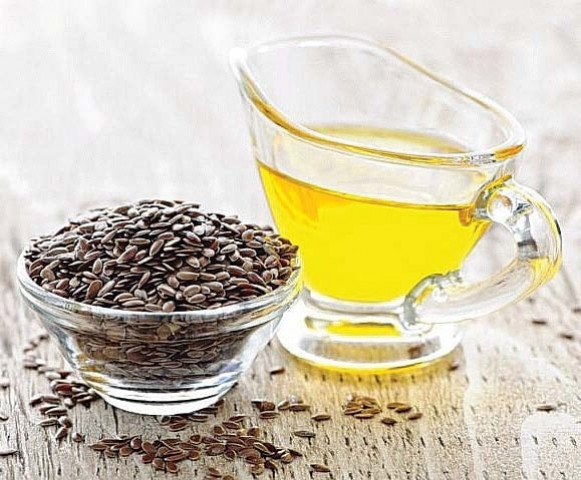Turmeric & Flax: Hale and hearty living
Look into the pantry and discover the benefits of turmeric and flax.

In this day and age of healthy living, innumerable supplements and trips to the nutritionist, many turn a blind eye to the ancient, tried-and-tested benefits of everyday ingredients found easily in most well-stocked pantries. From the subcontinent’s Fertile Crescent to the expansive plains of Sumeria, our predecessors cultivated turmeric and flax for medicinal/health purposes. Recently, nutritionists and health nuts alike have woken up to the potential of incorporating these ingredients into a regular, healthy diet.
Turmeric
This is a real wonder herb. Local to South Asia, turmeric (or haldi) is commonly used in regional cooking: curries, saalans, etc. However, the health benefits come from its raw form - the miraculous gold-yellow powder itself. In its chemistry, turmeric includes curcumin, “shown to exhibit antioxidant, anti-inflammatory, antiviral, antibacterial, antifungal and anticancer activities,” (Bharat B Aggarwal, Young-Joon Surh, Shishir Shishodia, Circumin: the Indian Solid gold). Although research only recently unearthed these activities, Ayurvedic healing practices, that spanned centuries, figured this out early and use turmeric for healing, restorative and cosmetic purposes.
“It’s brilliant for overall fitness, skin and burning fat,” says Zarak Khan, physical trainer, nutritionist and director of ZK Fitness, Islamabad. Khan adds, “When coupled with a strong workout regimen, turmeric tones the body, encourages muscle development and cleanses the system.”
Research also shows that urine samples of smokers with regular turmeric intake pass little to no mutagens (cancer causing agents) compared to those who exclude the herb from their diet.
Due to turmeric’s largely pungent taste and aroma, many are put off by the idea of consuming it. Diluting a teaspoon (daily) of haldi in a shot of milk with some honey or taking turmeric capsules — available at most drugstores, pharmacies, and homeopaths — solves the problem of taste.
Flax
Also known as common flax or linseed, flax grows indigenously in the Fertile Crescent and Mediterranean regions. The oil itself — extremely high in nutritional/health value — comes from the seeds. According to whfoods.com, “Flaxseeds are rich in alpha linolenic acid (ALA), an omega-3 fatty acid.” Both ALA and omega-3 fatty acids protect the body against cancer, heart diseases, diabetes and high blood pressure. Moreover, they maintain a visibly healthy body which helps to retain flawless skin, strong bones and healthy hair and nails.
Another plus, linseed oil is a popular alternative to fish oil supplements, ideal for people repulsed by the idea of taking fishy castor oil supplements (fishy burps ensue) or spending thousands or rupees on expensive Norwegian Salmon Oil tablets (they’re easier on the tummy).
“Linseed oil is a popular buy here,” says the manager at Shaheen Homeo Store. “Especially with older people, who get it a lot because it is very healthy and controls their blood pressure.”
Similarly, the dietary fibre from the flax plant itself is an excellent source of nutrition; more and more people bake it into their breads to improve digestion and blood circulation. It also helps stabilise blood sugar levels and safeguard against cancer (particularly prostate and breast cancer).
Again, like turmeric, flax (in both seed and oil forms) is an easy find: check your kitchen or pick some up while you are out grocery shopping. Both are extremely affordable and extremely vital for hale and hearty living.
Published in The Express Tribune, September 30th, 2011.



















COMMENTS
Comments are moderated and generally will be posted if they are on-topic and not abusive.
For more information, please see our Comments FAQ